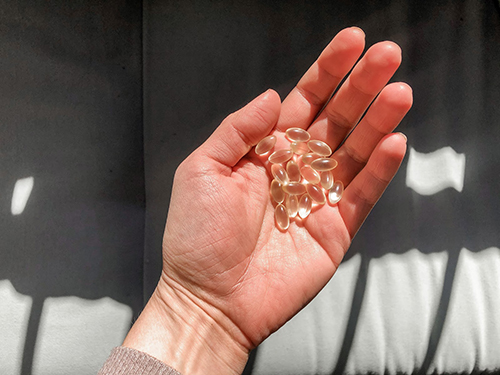
How Does Vitamin D Help the Immune System?
It’s important to understand that low levels of vitamin D have long been linked to increased risk of infection, disease, and immune-related disorders. Research confirms that vitamin D is necessary for a healthy, functioning immune system. Not only do vitamin D’s anti-inflammatory benefits help your body mount a stronger immune response, but this essential vitamin also helps activate immune cells and processes that protect your body from pathogens. In short, without an adequate amount of vitamin D, your immune system is not nearly as strong or responsive as it could be.
Is It an Antiviral?
In addition to strengthening your overall immune response, vitamin D also helps to protect against potentially deadly infections by boosting levels of natural antibiotic-like substances in the lungs. These substances are known as antimicrobial peptides, and they are particularly effective at protecting against respiratory infections in cases of colds and the flu.
Does this make vitamin D an antiviral medication? Definitely not. You wouldn’t pop a vitamin D pill to treat an infection like a cold, the flu, or COVID-19. However, research indicates that when taken early, often, and consistently enough, vitamin D supplements in at-risk populations can help prevent a virus from escalating to a potentially deadly respiratory infection.
Can It Prevent COVID-19?
It’s this same antibiotic-like boost that makes vitamin D the focus of so many COVID-19 headlines. But just as vitamin D can’t cure an infection, it can’t ensure that you won’t contract the novel coronavirus, either.
What vitamin D supplementation can do is reduce your risk of severe illness. Recent research has found that as many as 80% of COVID-19 patients were also vitamin D deficient. Since vitamin D has been shown to decrease infection risks and increase protective antimicrobial peptides, vitamin D supplements can help secure better COVID-19 outcomes in deficient patients. In addition to helping prevent acute respiratory tract infections, vitamin D supplementation has also been shown to help prevent exaggerated inflammatory responses that frequently contribute to COVID-19 hospitalizations. Still, vitamin D supplementation is just a preventative measure. There is currently no cure for COVID-19, and supplementing with vitamin D doesn’t guarantee that you won’t get sick.
Should You Take a Vitamin D Supplement?
The science is clear on one thing: if you are deficient in vitamin D, it’s best to supplement immediately and consistently to make sure you’re getting enough of this nutrient. More than half of US individuals may be vitamin D deficient. Those at risk for vitamin D deficiency also happen to be most at-risk for contracting COVID-19. This means that if you have darker skin, spend a lot of time indoors, or have a diet that doesn’t include much dietary vitamin D, you may want to consult with your doctor to see if a vitamin D supplement is right for you. A simple blood test can determine whether or not you are vitamin D deficient and help you determine the dosage of your vitamin D supplement.
There’s a popular saying in the medical community: “An ounce of prevention is worth a pound of cure.” The bottom line is this: vitamin D is an excellent and necessary preventative measure, especially where respiratory health is concerned. Though it may not be the COVID-19 cure we’re all looking for, it’s certainly the preventative measure we should all take to protect our personal health and that of our neighbors.
To view our full selection of vitamin D supplements, visit our product page.
